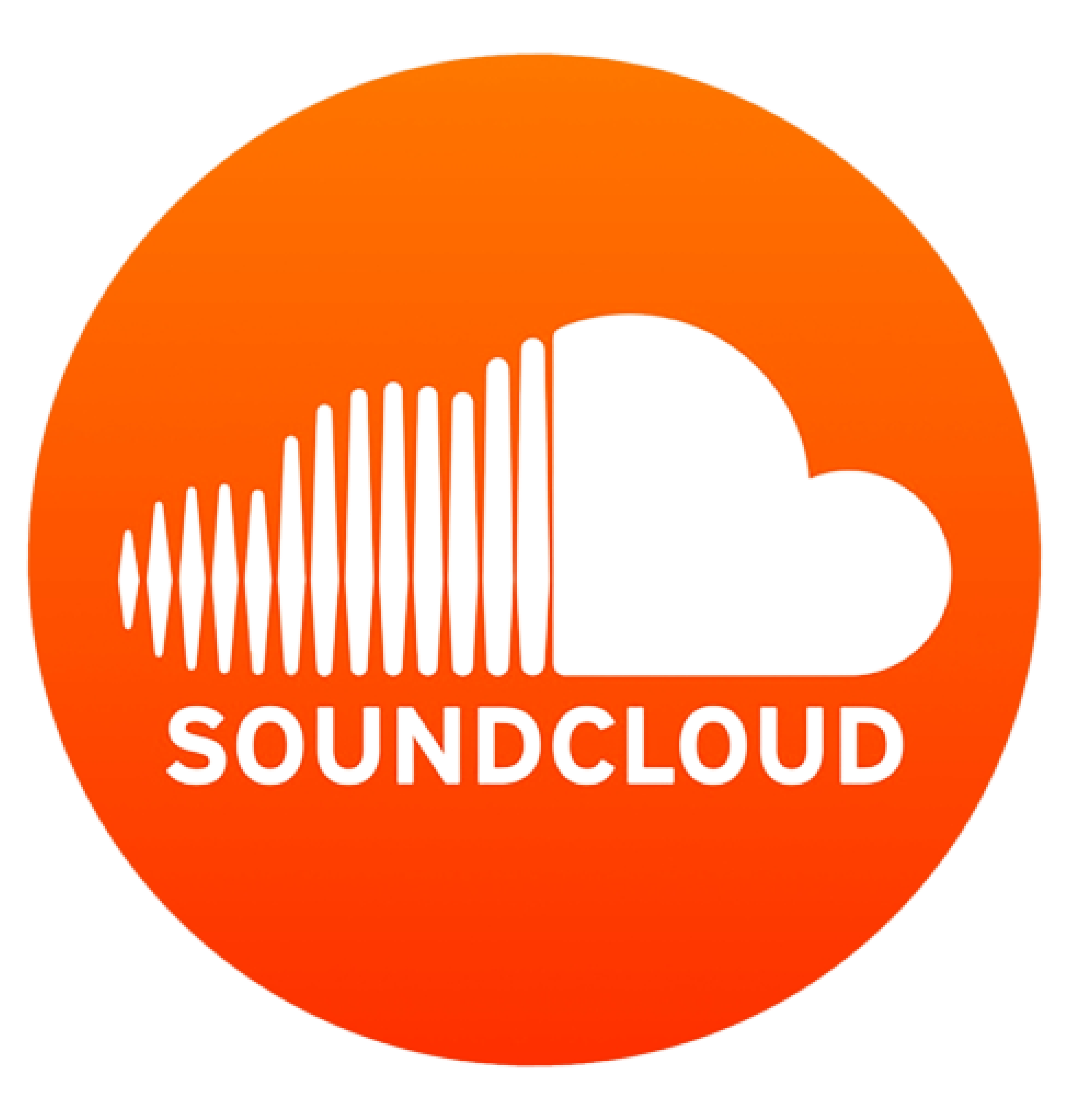Writing and editing are two separate tasks for me. I never allow my inner critic to interrupt my creative writing process.
I sit down to write, usually galvanized by an idea that has just popped into my head or is finally ready to be put into words. When I sit down to write (actually, I don’t always literally "sit down" - I might just start thumb-typing on my phone in the middle of the street), I let it all out. All my ideas, all my words, all my passion, and all my mistakes too.
I know I will edit the text later. I know that my first draft is going to be messy, long, ugly, and just bad. I am ok with that. I remember that editing is a whole different process that should begin only once I am done creating.
When I sit down to edit, I do actually sit down at my desk, remove all distractions, and edit mercilessly. First, I cut all the clutter and correct all the mistakes. Then I add specific, vivid details to sentences that my readers need to see, smell, touch, taste, and feel.
I once listened to someone’s review of a fiction paragraph. The verdict was: "Your paragraph contains a lot of ideas but almost no images. Try to replace all the abstract language with concrete language. Replace the sentences that are thoughts with an image, or pair them with an image." This made so much sense to me because as I was reading that paragraph myself I couldn’t really see it. A lot was going on there but I could not imagine it. I didn’t see the protagonist’s hair color, didn’t know what chemical she mentioned, or how big the room was…
That’s why I am always on the lookout for non-specific and indefinite words in my own writing. All the words that have "some" or "thing" in them immediately fall into this category: sometimes, something, somewhat, somebody etc…
We spent some time at the party
becomes
We spent only 30 min at the party.
I picked up some things at the store
becomes
I picked up olives and garlic at the store: the only ingredients I was missing for the pizza.
Instead of: tree, car, dinner, disaster, some
I will write: aspen, Mercedes, Chinese takeout, hurricane, thirteen
If I write "I exercise regularly" (which is true) it is general, non-specific. You don’t really know what exercises I do.
If I say "I take a brisk walk for at least 30 minutes three times a week", that sounds more specific.
"I don’t go to the gym, I do a 45-min bodyweight workout every day at home" — that is specific too.
Let me show you a few more examples of how bland texts can turn into fascinating content if we specify what we say.
Note: these examples might seem a lot more sophisticated and even irrelevant for someone who writes a blog or creates marketing copy. Stick around… I’ll explain why I’m including them in the final paragraphs.Describing EXPERIENCE
Example 1:
You’ve been trying to lose weight for years but nothing works for you. You think you’re hopeless and you hate your body. You have tried everything but each time you give up and go back to the beginning.
Example 2:
Let’s say you’re trying to lose weight and your big hang-up is that you run through about three liters of ice cream each week. You’re an ice cream fiend. You’ve tried stopping through willpower. You’ve tried diets with your friends. You’ve told your partner to never ever buy ice cream again in a desperate attempt to blame them for your own shortcomings. But nothing’s worked. Not a day goes by that you don’t down about a thousand calories of creamy goodness. And you hate yourself for it.
(From Mark Manson’s blog)
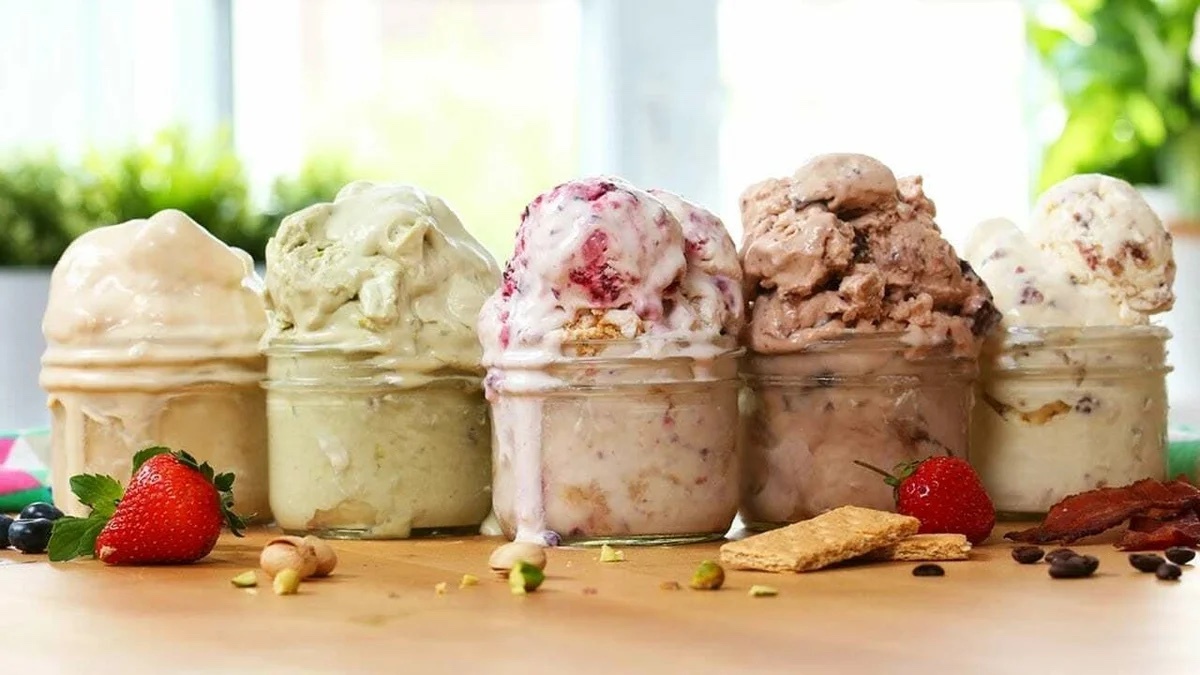
Which paragraph is just an idea, and which one is a vivid image? "Everything" is a vague, abstract word. Listing "everything" in short sentences and specific examples makes it a lot easier for the reader to SEE the situation.
Describing APPEARANCE
Example 1:
Some people have blue eyes and beautiful long lashes. Not me. I am Asian, and my eyes are small and narrow.
Example 2:
Some people have eyes like sapphire lagoons with lashes like lace trim on ball gowns, sweeping their cheeks as they twirl. Big eyes, long lashes. Not me. I have eyes that kiss in the corners and glow like warm tea.
From " Eyes That Kiss in the Corners, the New York Times bestselling picture book by Joanna Ho"
The first example does give us an image. However, the second one gives us more than just a still image. It’s a whole experience. The author added sensory details, and we can almost feel what it’s like when these eyes look at us.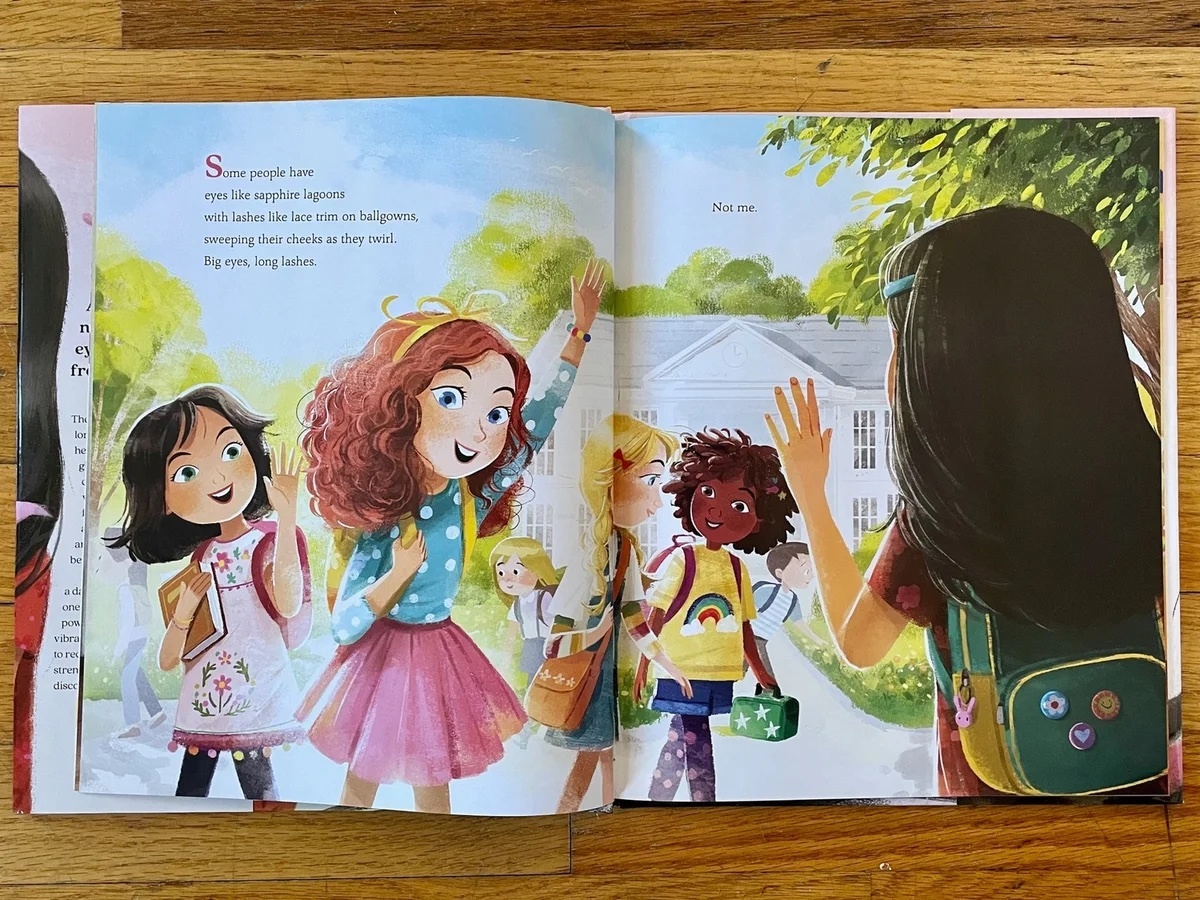
Describing COLOR
Instead of "blue", try specifying. What shade of blue? Sapphire Blue? Denim? Sky Blue? Blueberry? Tiffany Blue?
Instead of "black", try specifying. Was it "pitch black"? Gloom? Jet Black? Ebony?
Instead of "orange", try showing what kind of orange. Sunset Orange? Saffron? Autumn Orange? Home Depot Orange? Mac and Cheese?
Here is an example from Toni Morrison’s Sula
She found what she had been looking for… his driver’s license. It contained just what she needed for verification — his vital statistics: Born 1901, height 5'11", weight 152 lbs., eyes brown, hair black, color black. Oh yes, skin black. Very black. So black that only a steady careful rubbing with steel wool would remove it, and as it was removed there was the glint of gold leaf and under the gold leaf the cold alabaster and deep, deep down under the cold alabaster more black only this time the black of warm loam.
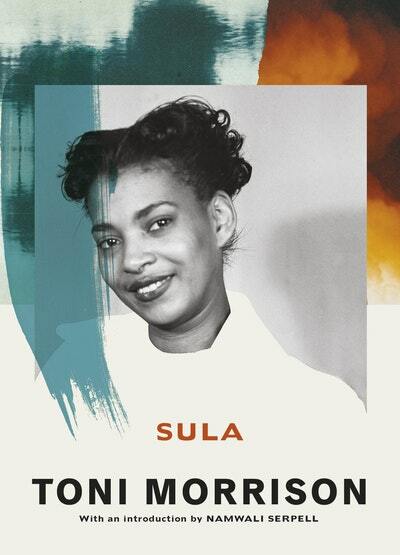
Here is another example from The Unraveling by Benjamin Rosenbaum
Ve was bigger than Squell, broad-chested and square-jawed, with a mane of blood-red hair and sunset-orange skin traced all over with white squiggles.
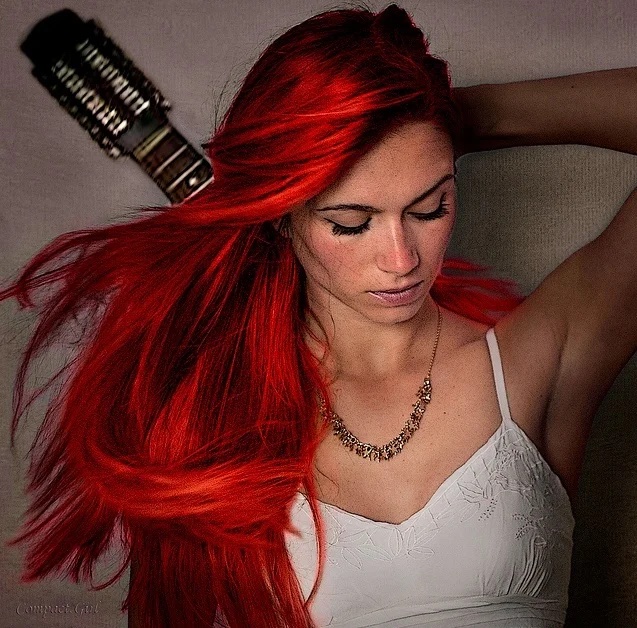
This example is from A Dark and Starless Forest by Sarah Hollowell
Elle and Irene are twins, but not identical twins—they're both tall white girls, but there are a million little differences, like Elle’s honey-blond hair vs Irene’s dark blond, or Elle’s face, with its thick smattering of freckles, versus Irene’s face, which tends to go red more than it freckles or even tans.
Describing CHARACTER TRAITS
Adjectives are an important ingredient of every paragraph that describes people. However, what if we replace our ideas and opinions about people ("responsible person", "pretty girl", "impolite man", "shy boy") with vivid images that show their character?Imagine someone who…
- Flosses teeth in public
- Doesn’t like to wear shoes; would rather go barefoot
- Curses a lot and in very graphic ways
- Wears hoodies all the times
- Is shy around women
- Owns a motorcycle instead of a car
- Paints each fingernail a different color (toes, too)
Can you see them? Those people who do all these things? Can you see what they’re like?

Finally, let’s look at some business situations.
A lot of business presentations contain such vague nouns as factor, aspect, area, consideration, degree, or case. All of them can be deleted or replaced with more substantive language.
Compare these examples:
Vague: Strong public speaking skills are an important factor in our managers' career success.
Precise: Managers with strong public speaking skills have higher chances to get a promotion.
Surprisingly, a lot of job ads and resumes use vague and abstract language.
Here are some examples from www.businesswritingblog.com
- Our company is looking for a flexible team player. (Flexible? For what? The office gymnastics tournament?)
- I am an experienced Director of Operations. (Why should I believe you? You offered no examples of your experience.)
- ZYX Marketing will integrate actionable solutions. (Classic B2B marketing fluff—big words, no substance.)

The sentences below are offered by Harward Extension school.
Can you see how they are more precise?
- This employee consistently triggered revenue growth by generating 20% sales growth for 5 consecutive years
- We’re looking for a finance professional with 5+ years of experience in publicly traded and privately held enterprises
The example below is very common for many businesses that offer all-in-one solutions.
- Our company can help you meet all your marketing goals.
- At XYZ Marketing, we offer website design, email campaigns, and social media posting to help you turn leads into customers.
Specificity is a powerful tool.
It helps the reader see, taste, touch, smell, feel, and understand what the author is writing about.
Now, I have to say that I do not write fiction, even though I am inspired by well-written fiction books. I write sales copy, social media posts, website copy, tons of work emails, and my favorite is — personal diary entries.
I am most inspired by my own everyday experience. Everyday things include people, feelings, thoughts, weather, colors, sounds, food… I am so often surprised by how quickly I run out of words to describe such simple, routine things.
What was her smile like today? Hm. beautiful? No, "warm" is the right word.
"The dessert was amazing" - no, that’s a horrible sentence! That’s not what it was! And I am not writing a boring food ad. "We ate a rich dark chocolate cake. Such a decadent after-dinner treat!" — well, that sounds a lot more like what I actually ate.
This daily practice of looking for precise words in English to articulate my ideas, memories, doubts, and Aha! moments has been the most rewarding writing exercise.
Reading fiction helps me stick to this practice. It helps me shape my writing voice, as well as find the right words to plant a crystal clear image in my reader’s mind rather than talk about it.
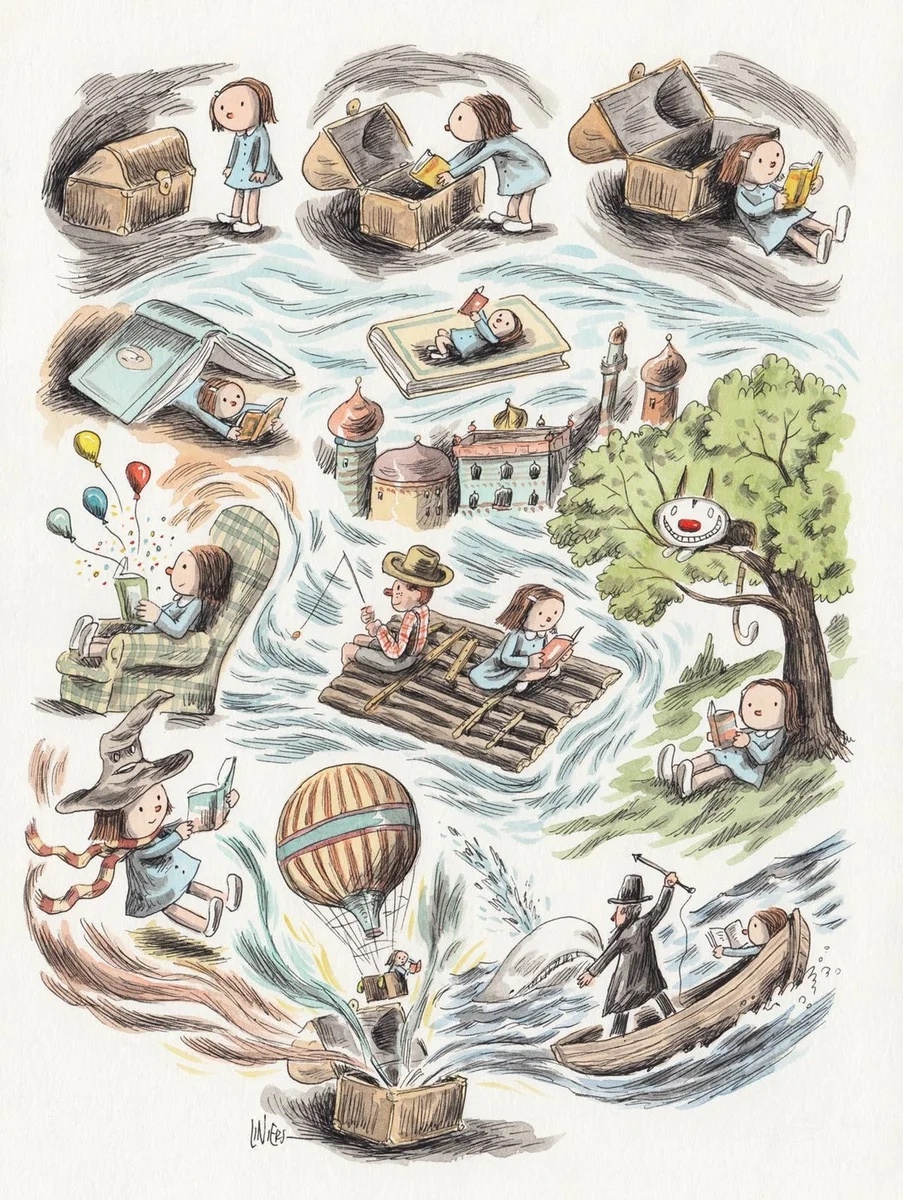
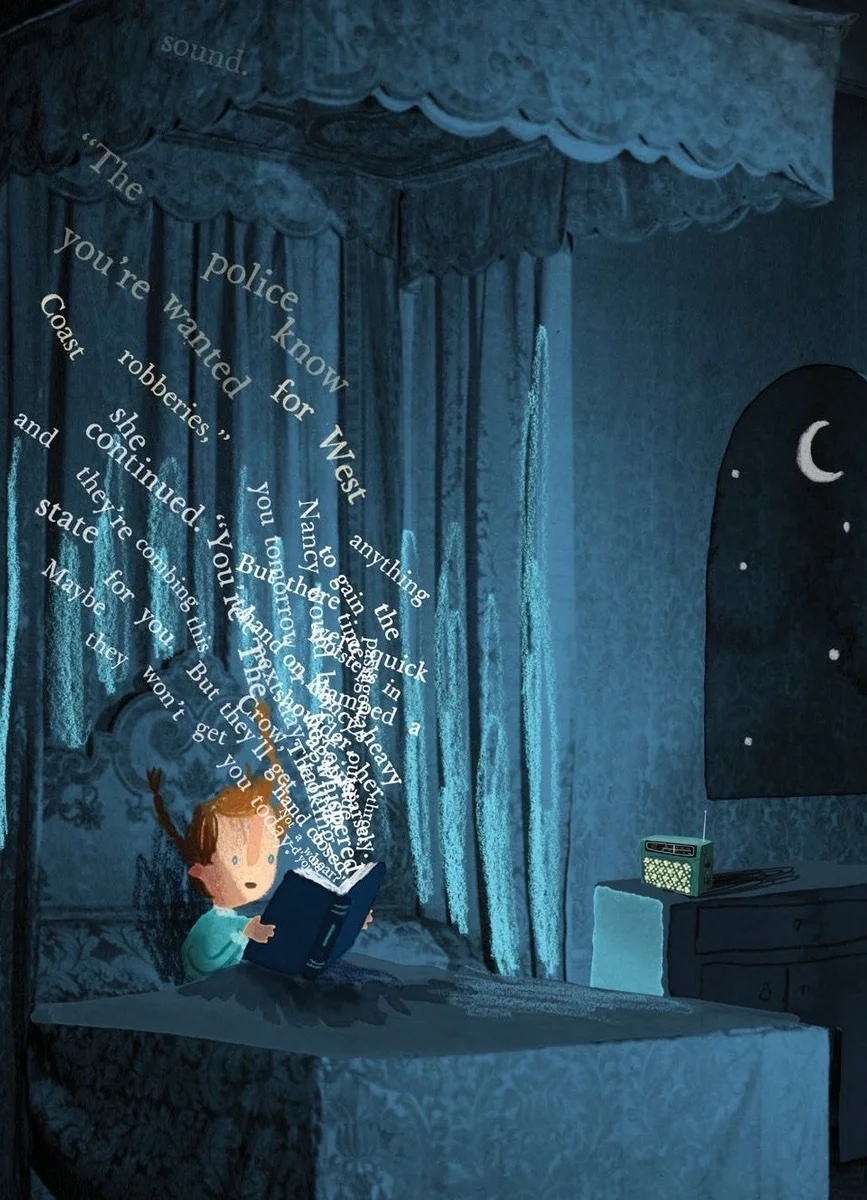
I agree with Glen Long who says "without clarity, those other qualities that hog the limelight — passion, invention, empathy, originality — are rendered useless."
Sometimes it doesn’t need to be a clear image though. It can be a feeling that resonates so strongly with the reader that they can’t stop feeling it… The feeling insists on being there, it asks uncomfortable questions, or reveals hidden answers… and that’s why people remember it. They remember what my writing makes them feel, and that’s why they come back to read more. I don’t know any business book or any sales copywriting course that can teach me that.
I want my writing to create vivid images that people relate to and remember. Besides, my brand is me, which means my texts need to show what I am and what I stand for without me being explicit about it.
The question is — how can I show that to others if I can’t describe what my day was like and what it meant to me, even to myself, in my own diary?
Every time I ask myself this question, I go back to the humble practice of explaining things to myself in writing -- both in English and in Russian, my first language.
No matter how high my writing ambitions are, I remember that writing and editing are two separate tasks. Creating a writing voice is a healthy ambition. Editing endless ugly drafts is the necessary practice to get there.




